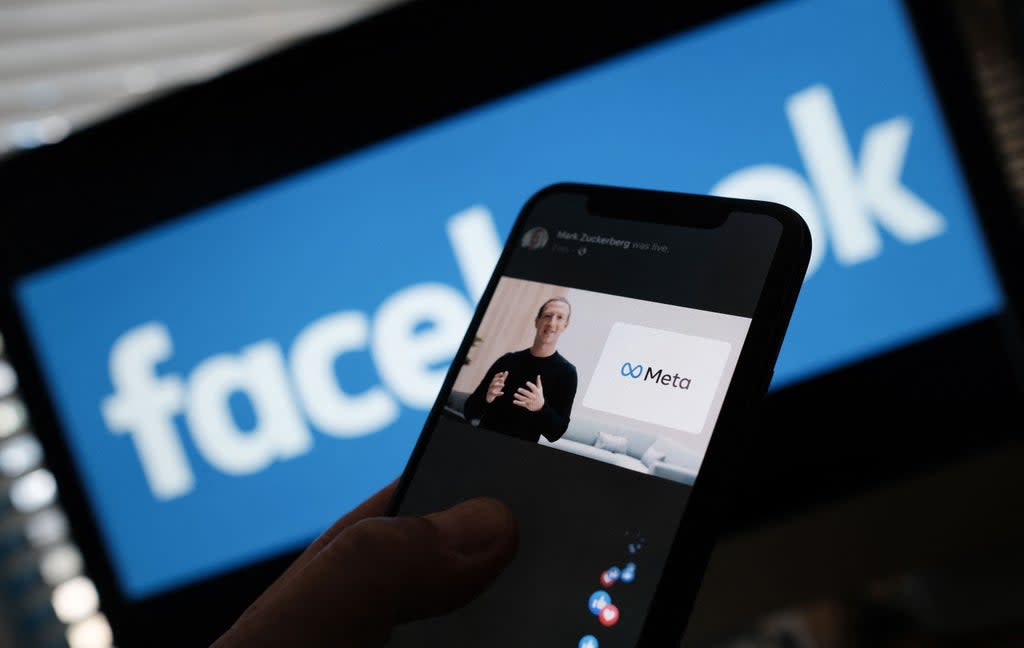Why is Facebook changing its name to Meta? The official reason – and why it might really be happening

Facebook doesn’t want to be called that anymore. Instead, it wants you to refer to it as Meta.
The change was announced by Mark Zuckerberg during a keynote presentation in which he claimed that the metaverse was the future of the company he founded.
The focus will no longer be so much on the blue app that gave that company its name and which will still be known as Facebook, he said. Instead it will be on that metaverse, and the company’s name will be changed to reflect that.
But there may be more lurking behind that change of name, and other reasons that the company has chosen now to get rid of the Facebook name from its branding.
The official reason
Facebook’s big argument is that the company’s name does not reflect everything it does. This is true even before the metaverse gets involved: Instagram, WhatsApp, VR platform Oculus and others are all part of the Facebook company, but have very little directly to do with the blue app that gave that company its name.
That will become even more true if Mark Zuckerberg’s big bet on the future being the metaverse becomes true. In the announcement, Mr Zuckerberg suggested that it was the future of the social internet, as well as the future of Facebook – allowing people to hang out, work and play in virtual spaces.
He showed how someone might appear in a work meeting as a hologram, for instance. Or the ways that people could play games while in virtual reality, alongside avatars of their friends.
Depending on your view, the name is either a bet on the future or coming too soon, since Facebook did not actually announce any real products or developments that will allow anything like the metaverse to come any time soon. Either way, the name reflects what Facebook wants to be, rather than what it is, and there’s no real way that it can be called a metaverse company today.
That was clear throughout the presentation. It lasted for 90 minutes, but the new name was the only announcement that was both significant and real; for the most part, it was made up of promises about what the metaverse would be, rather than any actual information about how Facebook plans to get there.
The real reason?
But the name change comes at a more interesting time for Facebook than it does for the metaverse. There might never have been a moment when the brand was valued less highly than it is today.
Multiple major scandals about everything from privacy to the protection of young people have led to concerns that Facebook is doing damage to the world, rather than helping it to connect.
And perhaps even more worryingly for Mark Zuckerberg and his investors, people appear to be losing interest in the Facebook app and some of its other services. Leaked internal research shows that growth is rapidly slowing, that its users are getting older, and that the company is internally concerned about whether it will be able to keep occupying its huge place in the culture.
With all of that, it is an excellent time for Facebook the company to distinguish itself from Facebook the app. It means that whether or not the future really is the metaverse, it will be able to cut itself off from its past, and perhaps try and focus away from its struggling apps.
It could also mean that Facebook the company can separate itself from criticism of Facebook the app. Much of the attention has been focused on the way that blue app is built – how the algorithms that power its news feed might have highlighted divisive content, for instance – and that scrutiny might be less damaging if it can be separated from less controversial apps in the family, such as WhatsApp.
In the past, Facebook has attempted to do a similar move by bringing its various apps together: in 2019, it started branding WhatsApp and Instagram as being “from Facebook”, in an apparent attempt to have the positivity of those brands help out Mr Zuckerberg’s own more controversial app. Facebook now appears to be moving in the opposite direction, even if it is looking to solve the same problem.
Of course, these two reasons aren’t in conflict: Facebook wants to move on from its difficult past, and sees its future as something else.
But either way it is importan to remember that for the time being, nothing has significantly changed about Meta from last week, when it was known as Facebook.


